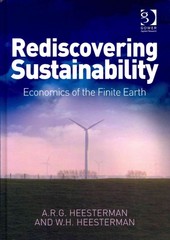Question
Yotube link for just A And B http://www.npr.org/sections/money/2013/02/23/172724026/episode-438-mavericks-monopolies-and-beer a) If two privately owned companies want to merge, is it fair for the government to step
Yotube link for just A And B
http://www.npr.org/sections/money/2013/02/23/172724026/episode-438-mavericks-monopolies-and-beer
a) If two privately owned companies want to merge, is it fair for the government to step in and stay they can't?Why or why not?What should the government be thinking about.I don't want a discussion of the status quo, I want what you think seems like appropriate policy.
b)Take a look at the brands owned by the large beer companies, did you realize there was so little competition in the beer market? https://www.marketwatch.com/story/these-11-brewers-make-over-90-of-all-us-beer-2015-07-27 Have you heard of any other markets that feel like there are options but are really dominated by only a handful of companies?
1) Diane's Diamond Depot and Sean's Sock Shop are the only two stores in a small shopping center sharing a parking lot. The owner's are considering hiring a shared overnight security guard to patrol the parking lot. Assume the presence of a security guard in the parking lot will deter criminal activity to either store.
Diane has very valuable inventory, and is very afraid of a break-in so she is willing to pay $700 per week for a security guard. Sean doesn't have as valuable of inventory, but is still concerned with break-ins or vandalism and is willing to pay $300 per week for a security guard.
The cost to hire a security guard to patrol the lot is $800 per week.
(1)Explain why the security guard can be considered a public good when we are only considering the two store owners as "the economy". Your answer should include the two characteristics of public goods and explain how they both fit this scenario.
(2)If they are going to hire a security guard, how would you suggest the $800 per week is divided? Explain your answer. (There is no right answer, but both tenants need to agree, so there are hypothetically wrong answers).
(3) Explain how both tenants have incentive to lie about how much they are willing to pay for a security guard and how this could lead to an inefficient outcome. Use your answer from the previous question as the basis for a numerical explanation of the incentive to lie.
(4) What do economists call this "problem", that the incentive to get access to a public good at the lowest possible price can lead to underprovision of public goods?
(5) "the tragedy of the commons". Even though toilet paper is a private good, theaccessto toilet paper, meaning the ability to walk into a store to buy it, is non-exclusive (anyone may walk into to Target, Wal-mart, etc.) and rivalrous (when there is no TP left on the shelves, nobody has access) meaning it could be considered a common good. Explain the "tragedy of the commons" to me as it relates to the toilet paper crisis from last year.
(answer should be using this real life event to explain this economic phenomenon)
Step by Step Solution
There are 3 Steps involved in it
Step: 1

Get Instant Access to Expert-Tailored Solutions
See step-by-step solutions with expert insights and AI powered tools for academic success
Step: 2

Step: 3

Ace Your Homework with AI
Get the answers you need in no time with our AI-driven, step-by-step assistance
Get Started


